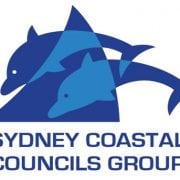Media Release – Beachwatch monitoring likely to discontinue in Sydney
29 January 2025
The NSW Government has announced a proposal to shift the costs of the Beachwatch program onto local councils in the Sydney region. Most of the Sydney Councils who have Beachwatch sites in their local government area are refusing to pay. As of July 2025, the state-funded program is likely to discontinue at popular swimming sites across coastal Sydney.
The NSW Government’s proposal involves transferring the financial burden of the program, which includes monitoring responsibilities, to local councils. This shift is expected to place additional strain on council budgets, which are already stretched thin due to existing cost-shifting practices.
The Beachwatch program, which monitors water quality at swimming locations, is particularly important to swimmers and beachgoers. The program provides vital information on water safety, helping to protect public health and ensure that Sydney’s beaches remain safe and enjoyable for everyone. Shifting the costs of this program onto local councils could jeopardize its effectiveness and availability, potentially putting the community at risk.
The Sydney Coastal Councils Group (SCCG) has highlighted that councils are not legally responsible for monitoring water quality at ocean and harbour beaches. Councils’ responsibility generally does not extend beyond the mean high water mark.
The SCCG also believes that the majority of poor Beachwatch ratings in the Sydney region are primarily due to sewage contamination which is the responsibility of Sydney Water, a state owned corporation. During wet-weather, un-treated sewage can often be introduced to the aquatic environments through stormwater infrastructure (1). Research using molecular microbiological approaches done at Rose Bay also found that human faeces from sewer was the key source of contamination both during wet-weather and dry-weather (2).
Acting Chair of the SCCG, Mr Hugh Phemister stated, “Sydney is defined internationally by our extraordinary harbour, beaches, and waterways. The coordinated management and monitoring of these vital waterways is best undertaken and funded by the NSW Government, especially given the impact arising from sewage which is the responsibility of Sydney Water.
The NSW Governments proposal seeks to shift the cost of monitoring to Councils and their rate payers without adequate justification and analysis. It is crucial that the State Government acknowledges its responsibility for water quality monitoring for the benefit of local residents and to maintain our international reputation as the one of the world’s most beautiful harbour cities.”
The proposed cost shift is part of a broader trend of cost-shifting practices that have imposed a cumulative burden of over $10 billion on NSW councils over the past decade. This practice has forced councils to divert rate revenue away from existing services and infrastructure to cover the unrecoverable costs of state-imposed programs and functions.
Recent incidents of water pollution have led to the closure of 23 Sydney beaches due to the presence of balls of pollutants washing ashore. Pollutants from sewer was a key component. These incidents highlight the importance of maintaining robust water quality monitoring programs to protect public health and safety and maintain the economic viability of business surrounding these beaches.
Local councils are calling on the NSW Government to reconsider this proposal and engage in meaningful dialogue to find a more sustainable solution that does not compromise the financial stability of local governments or the quality of services provided to communities.
For further information, please contact:
Sarah Joyce Executive Director of the Sydney Coastal Councils Group | sarah@sydneycoastalcouncils.com.au | 0407733075
End of Release
This media release aims to inform the public and stakeholders about the NSW Government’s proposal and its potential impact on local councils. It emphasizes the councils’ lack of legal responsibility for water quality monitoring and calls for a reconsideration of the proposal by the state-government.
Read the Media Release here.





